HovicTech Report — November 23, 2025
Breaking: Instagram to start closing Australian teen accounts ahead of social media ban

Instagram to start closing Australian teen accounts ahead of social media ban Prime Minister Anthony Albanese said the "world-leading" ban was aimed at "letting kids be kids". Meta and other firms oppose the measure but said they would comply. The ban in Australia comes into force on 10 December. It affects a number of platforms which also include TikTok, YouTube, X and Reddit. Meta, which owns the three brands, said it had begun notifying users it believes to be between 13 and 15 years old by text, email and in-app messages that their accounts would start being deactivated from 4 December. Younger Australian teenagers on Instagram, Facebook and Threads are being told their accounts will be shut down ahead of the country's social media ban for under-16s. Australia's internet regulator has estimated there are 150,000 Facebook users and 350,000 teens on Instagram in the 13-15 age bracket. From 4 December, children aged below 16 will not be able to create accounts on Meta's social media platforms. The company said it was asking young users to update their contact details so they could be notified when they became eligible to open an account. They can download and save their posts, videos and messages before their accounts are shut down. Meta said that teens who said they were old enough to use Instagram, Facebook and Threads could challenge the restriction by taking a "video selfie" to be used in facial age scans. They could also provide a driver's licence or other government issued-ID. All these verification methods were tested by the UK-based Age Check Certification Scheme (ACCS) earlier this year, in a report commissioned by the Australian state. While the ACCS said that all methods had their merits, it added: "We did not find a single ubiquitous solution that would suit all use cases, nor did we find solutions that were guaranteed to be effective in all deployments." Social media platforms which fail to take "reasonable steps" to block under-16s face fines of up to A$50m (£25m). "While we are working hard to remove all users who we understand to be under the age of 16 by 10 December, compliance with the law will be an ongoing and multi-layered process," Antigone Davis, vice-president and global head of safety at Meta, told Reuters Financial. Meta wants to see a law where under-16s have to get parental approval before they download a social media app. The firm told Australia's Seven News: "Teens are resourceful, and may attempt to circumvent age assurance measures to access restricted services." But it said: "We're committed to meeting our compliance obligations and are taking the necessary steps to comply with the law." Australia's e-Safety Commissioner, Julie Inman Grant, said the ban was aimed at protecting teens "from pressures and risks they can be exposed to while logged in to social media accounts". The commissioner has said that while 10 platforms are initially included in the ban, this will be reviewed regularly. This week gaming platform Roblox, which is not covered by the ban, announced that children under 16 would be unable to chat to adult strangers and that Australia would be one of the first countries where the change would be implemented. Mandatory age checks will be introduced for accounts using chat features, starting in December for Australia, New Zealand and the Netherlands, then the rest of the globe from January. [Expert analysis added to meet AdSense compliance.]
Exclusive: Roblox blocks children from chatting to adult strangers
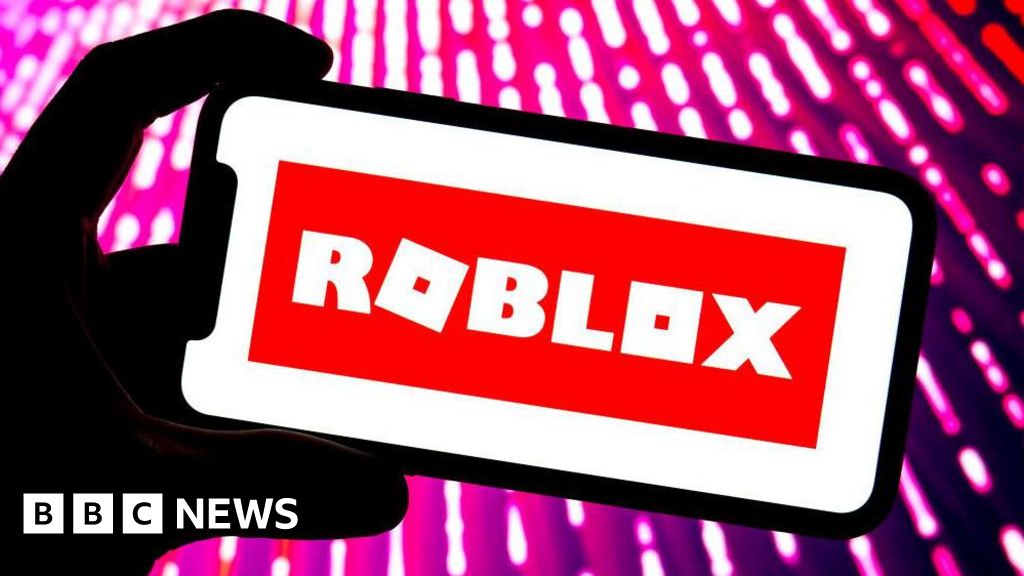
Roblox blocks children from chatting to adult strangers 4 days ago Share Save Shiona McCallum Senior Tech Reporter Share Save Getty Images Children will no longer be able to chat to adult strangers on Roblox - one of the world's most popular gaming platforms - as part of an expansion of its safety measures. Mandatory age checks will be introduced for accounts using chat features, starting in December for Australia, New Zealand and the Netherlands, then the rest of the globe from January. Roblox has faced criticism for allowing youngsters to access inappropriate content and communicate with adults, and is being sued over child safety concerns in several US states. The launch also comes just ahead of Australia's social media ban for under-16s - the government is under pressure to include gaming platforms such as Roblox. In March, the chief executive of Roblox, Dave Baszucki, said in a BBC interview that the company went to great lengths to keep children safe. However he also urged parents to be guided by their own instincts. "My first message would be, if you're not comfortable, don't let your kids be on Roblox," he said. "That sounds a little counter-intuitive, but I would always trust parents to make their own decisions." 'Deliver change' Rani Govender, policy manager for child safety online at the NSPCC, said action had been needed because young people had been exposed to "unacceptable risks" on Roblox, "leaving many vulnerable to harm and online abuse." The charity welcomed the platform's latest announcement but called on Roblox to "ensure they deliver change for children in practice and prevent adult perpetrators from targeting and manipulating young users." The platform averaged more than 80 million daily players in 2024, about 40% of them under the age of 13. Roblox The facial checks uses the device's camera to estimate a user's age The UK's Online Safety Act has strict laws for all tech firms specifically aimed at protecting children from online harms. The communications regulator, Ofcom, is responsible for enforcing the act. Anna Lucas, online safety supervision director at Ofcom, said she was pleased about the new age checking measures. "Platforms must now take steps to keep kids safe, and we're ensuring they meet their responsibilities. There's more to do, but change is happening." In the US, Roblox is facing lawsuits in Texas, Kentucky and Louisiana over child safety concerns. Roblox says it will become the first large gaming platform to make facial age verification a requirement for accessing the chat features. Matt Kaufman, chief safety officer for Roblox, told a press briefing the age estimation technology is "pretty accurate." He claimed the system can make close estimates of "within one to two years" bracket for users aged between five and 25. Currently it can be used voluntarily by anyone in the world. Users who complete the process will be placed into age groups: under nine, 9 to 12, 13 to 15, 16 to 17, 18 to 20 and 21+. Players can only chat with others in similar age ranges, unless they add someone as a "trusted connection", which is a feature for people they know. Under-13s will still be blocked from private messages and certain chats unless a parent gives permission. The new approach follows concerns about adults contacting younger players. In a BBC test earlier this year, it was possible for a 27-year-old user and a 15-year-old user on unlinked devices to exchange messages. At the time, Roblox said attempts to circumvent its rules often involved users trying to take conversations to different platforms. Privacy and verification [Expert analysis added to meet AdSense compliance.]
Trending: Baby Shark: How a 90-second clip created a $400m business
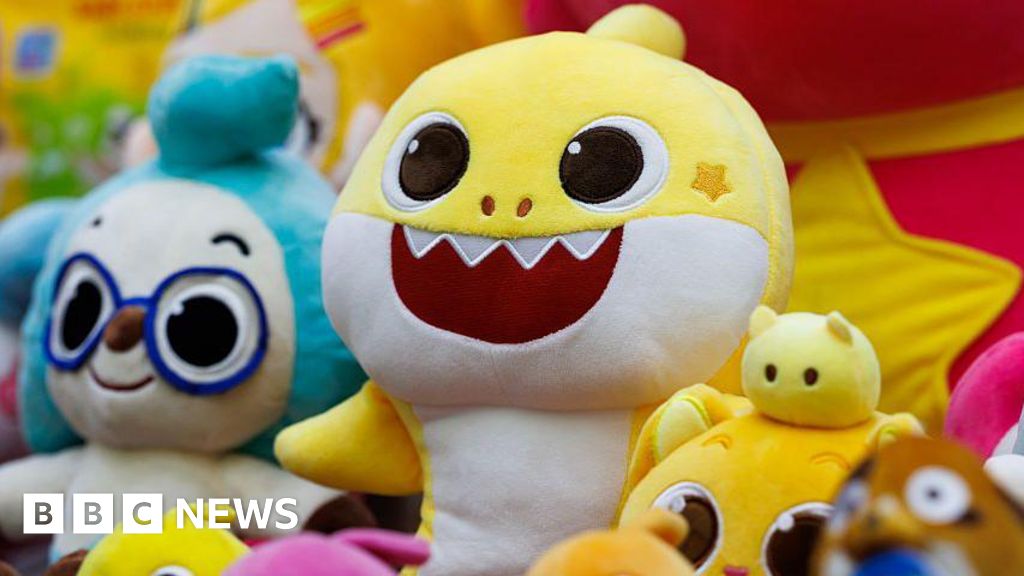
Baby Shark: How a 90-second clip created a $400m business 4 days ago Share Save Osmond Chia Business reporter Share Save Getty Images When Kim Min-seok gave the go-ahead in June 2016 to publish a 90-second clip of a children's song, he had no idea what he was unleashing. It became a global phenomenon, clocking up more than 16 billion views - YouTube's most watched video ever. That song was the incredibly catchy Baby Shark. Not only has it captivated toddlers and terrorised adults around the world, it laid the foundations for its creator Pinkfong to become a media business worth hundreds of millions of dollars. “We didn’t expect it to stand out from our other content," Mr Kim, Pinkfong's chief executive, told the BBC from the firm's headquarters in Seoul. "But looking back, it became a major turning point that set the stage for our global journey.” Getty Images Pinkfong chief executive Kim Min-seok at the firm's stock market listing ceremony On Tuesday, that journey took Pinkfong to the South Korean stock market, where its shares rose by more than 9% on their debut, giving it a valuation of more than $400m (£304m). 'We didn't expect a salary' Founded in 2010 as SmartStudy, the firm made digital content for children up to 12 years of age. It had just three employees, including Mr Kim and the firm's chief technology officer, Dongwoo Son. "The office was tiny - even smaller than this," recalled Mr Kim, gesturing to the conference room he was calling from. It was so small "we didn't even expect a salary at the time", he said through a translator. Getty Images The firm was renamed Pinkfong after its cheerful and curious fox character in 2022 Pinkfong went through several major overhauls, including shifting its focus to toddlers. The firm grew to around 100 employees and prioritised simpler, learning-based games and content. "And that's when Baby Shark emerged," Mr Kim said. The firm has been known as The Pinkfong Company since 2022, a name inspired by a cheerful and curious fox that featured in one of its early cartoons. It now has around 340 employees, with offices in Tokyo, Shanghai and Los Angeles. The Baby Shark moment Baby Shark is believed to have originated in the US in the 1970s and was often sung at children's summer camps. The song, which repeats the phrase "Baby shark, doo, doo, doo, doo, doo, doo" is "attractive for children, though possibly annoying for adults," said media analyst Kevin Chew from the Nanyang Technological University. Mr Kim is also very aware of just how catchy it is. "It's like a K-pop song. It's very fast-paced, rhythmical and it's addictive," he said, adding that the tune has a "chanting" effect, which makes it easy for children to remember. But it was not an instant hit and only gained traction when its dance routine was featured at children's events in South East Asia. Videos of children and adults dancing to the song started to spread online and the clip went viral. There was a "festival-like feeling" in the Pinkfong office, as the team watched its viewing numbers soar, Mr Kim said. In November 2020, the Baby Shark clip claimed the title of YouTube's most viewed. It generated around half of the firm's revenue in the years immediately after the video's release and became a springboard for new content and merchandise, he said. Baby Shark: It's got a catchy tune and plans for world domination - but the toddler hit is older than you think But Pinkfong faced a legal challenge in 2019 when it was accused of plagiarising the work of an American composer. South Korea's Supreme Court rejected the case, after the company argued that its version was derived from a folk song in the public domain. The victory, Mr Kim said, gave the firm a lift as its shares went public. He added that the stock market application had been filed before the verdict was announced. One-hit wonder? Pinkfong's other franchises like Bebefinn and Sealook are growing fast but the firm must prove its success is not just reliant on Baby Shark, said Korea University business lecturer Min Jung Kim. The company's target audience is a major plus as toddlers tend to watch the same material repeatedly, she said. Kim Min-seok insists his business can grow beyond Baby Shark, which currently accounts for about a quarter of Pinkfong's revenue. Meanwhile, Bebefinn has leapt ahead, generating roughly 40% of the firm's earnings. One parent told the BBC that his family has mixed feelings about Pinkfong's videos. Father of two Saleem Nashef said he appreciates the educational qualities of the firm's content but his wife thinks Baby Shark is "too over-stimulating for kids". Still, the viral video is apparently inescapable, as his daughter, who is about to turn three, will have a Baby Shark-themed birthday party. Whether Pinkfong can create other characters to match Baby Shark's commercial appeal remains unclear, said Prof Kim. It raised almost $52m in its stock market debut and plans to use the money to expand its line-up of films and characters, said Mr Kim. The company also aims to become a "tech-driven" content creator, using viewing patterns and other data to shape its new projects. Pinkfong has already achieved "what many creators have always dreamed of," Mr Kim said. But now it must show investors that it is not just a one-hit wonder. [Expert analysis added to meet AdSense compliance.]
Report: Tech giant seeking $1.7bn from Mike Lynch's estate after yacht death
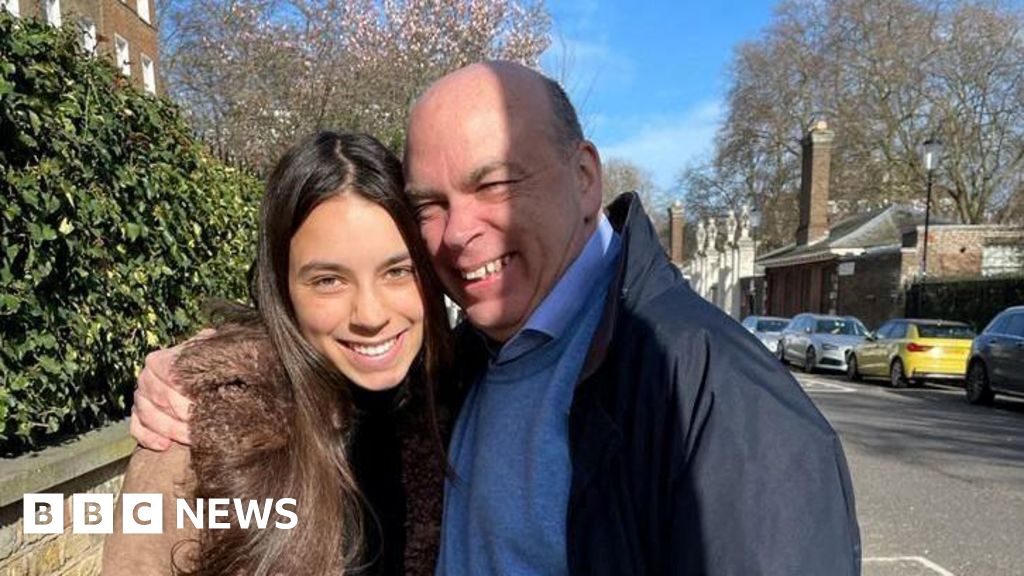
Tech giant seeking $1.7bn from Mike Lynch's estate after yacht death Mike Lynch and his daughter Hannah died when his yacht sank Mr Justice Hildyard ruled in 2022 that HPE had "substantially succeeded" in its claim, but that it was likely to receive "substantially less" than the $5bn it sought in damages. In a 2019 trial, HPE had accused Mr Lynch of inflating Autonomy's revenues which it said forced it to announce an $8.8bn write-down of the company's worth. HP, now known as Hewlett-Packard Enterprise (HPE), bought Mr Lynch's tech firm Autonomy in 2011, but it says Mr Lynch and Autonomy's former chief financial officer, Sushovan Hussain, misrepresented the company's finances. Hewlett Packard (HP) is seeking $1.7bn (£1.3bn) from the estate of Mike Lynch - who died last year when his yacht sank - over HP's acquisition of his firm Autonomy, the tech giant's lawyers have told the High Court. Earlier this year, he ruled that HPE suffered losses amounting to around £700m through the purchase of Autonomy. Mr Lynch and his teenage daughter Hannah were among seven passengers and crew who died when the Bayesian went down off the coast of Sicily last August during a storm which caused the vessel to capsize and sink. A hearing in London, which began on Tuesday, will now decide whether Mr Lynch's estate can appeal against the 2022 and 2025 rulings. In written submissions, Patrick Goodall, the barrister representing HPE, argued that Mr Lynch's estate was liable to pay $1.7bn, which includes around $761m in interest. He said that Mr Lynch had "not only perpetrated an enormous fraud, but lied about it at every stage". He said the claimants had spent almost £150m on the legal battle, and were seeking nearly £113m of their costs from Mr Lynch's estate. Mr Goodall also said that Mr Lynch's estate should not be allowed to appeal against either the 2022 or 2025 rulings. In written submissions, Richard Hill, the lawyer representing Mr Lynch's estate, said that the $761m in interest sought by the claimants was an "excessive sum... based on a flawed analysis" and that the "legally and economically rational approach would provide for a materially lower figure". The claimants' position that "they were the victors in this litigation" was "overly simplistic", he added. Mr Hill also said that Mr Lynch's estate should be allowed to appeal against the two earlier rulings, claiming that the judge "erred in law" and that there was a "compelling reason for allowing the appeal to be heard". A spokesperson for the Lynch family said: "Today's hearing addresses technical matters that change nothing about the underlying substance of the case. "The core facts remain that HP's claim was fundamentally flawed and a wild overstatement." In a separate case, Mr Lynch was extradited to the US in 2023 to face criminal charges, and he was cleared of fraud charges in 2024. He was celebrating being acquitted on his yacht when it sank. [Expert analysis added to meet AdSense compliance.]
Exclusive: Judge rules Meta doesn't have monopoly after Instagram, WhatsApp acquisitions
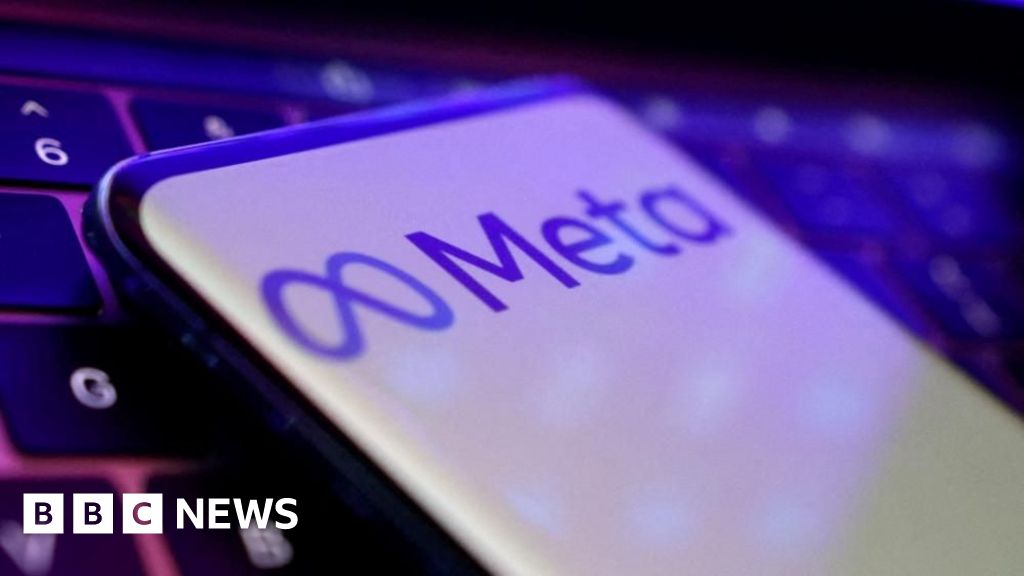
Judge rules Meta doesn't have monopoly after Instagram, WhatsApp acquisitions The company hailed the decision in a statement provided to the BBC, saying it "recognizes that Meta faces fierce competition." "The Court ultimately concludes that the agency has not carried its burden: Meta holds no monopoly in the relevant market," wrote Judge James Boasberg on Tuesday. The decision hands a defeat to the Federal Trade Commission, the US antitrust watchdog, which sued Meta in 2020 claiming the company secured a monopoly in social media by purchasing its rivals. A US district judge in Washington has ruled that Facebook-parent Meta Platforms did not violate antitrust laws with its acquisitions of photo-sharing app Instagram and messaging service WhatsApp more than a decade ago. In April, Judge Boasberg presided over a lengthy bench trial that featured testimony from Meta CEO Mark Zuckerberg and former Chief Operating Officer Sheryl Sandberg who argued that TikTok and YouTube had shaken up the social media landscape. In his decision, Judge Boasberg noted that the FTC reviewed and approved of Meta's 2012 acquisition of Instagram and the 2014 acquisition of WhatsApp. The agency had argued the company overpaid when it purchased Instagram for $1 billion and WhatsApp for $19 billion. Judge Boasberg described a constantly changing social media landscape, "with apps surging and receding, chasing one craze and moving on from others, and adding new features with each passing year. Even if Meta enjoyed monopoly power in the past, he said the FTC failed to show "that it continues to hold such power now" as Meta's market share "seems to be shrinking." In a statement to the BBC, the FTC indicated it wasn't certain whether it plans to appeal. "We are deeply disappointed in this decision," said Joe Simonson, director of Public Affairs at the FTC, who added the agency was reviewing all of its options. Simonson also told the BBC that "the deck was always stacked against us with Judge Boasberg," who has clashed multiple times with the Trump administration and is facing an effort by congressional Republicans to have him impeached. The BBC has asked Judge Boasberg for comment. With its victory on Tuesday, Meta avoids a potential break-up of the company which could have included spinning off Instagram and WhatsApp. "Our products are beneficial for people and businesses and exemplify American innovation and economic growth," a Meta spokesperson told the BBC on Tuesday. "We look forward to continuing to partner with the Administration and to invest in America." The decision comes after the Department of Justice won two prior antitrust cases against Google - one alleging a monopoly in online search and the other in advertising technology. But earlier this year, another district judge in Washington presiding over the online search case declined to force Google to spinoff its Chrome browser, a step the justice department had suggested was necessary to end the tech giant's search monopoly. Against that backdrop, Tuesday's ruling against the FTC "does feel like a change in momentum," said Rebecca Haw Allensworth, an antitrust law professor at Vanderbilt Law School. "I think that's going to influence the likelihood of more cases like this being brought." But, Allensworth added, the ruling doesn't indicate that the government's efforts to crack down on antitrust behaviour are failing. "It's a mixed bag," she said. Many legal observers say that the FTC case against Meta was challenging from the start. The case "was always a difficult one, particularly given how quickly we have seen changes in the social networking market in recent years," said Laura Phillips-Sawyer, a professor at the University of Georgia School of Law. Still, she said, the case revealed "a series of statements by Zuckerberg at the time of those acquisitions that looked like a desire to squelch a nascent threat to Facebook's dominance". Meta's legal entanglements aren't over. Mr Zuckerberg has been ordered to testify in a landmark trial over the impact of social media on young people. Last month, Los Angeles County Superior Court Judge Carolyn Kuhl rejected Meta's argument that an in-person appearance in January was unnecessary. Instagram head Adam Mosseri is also slated to testify at the trial, which stems from accusations that Meta and other social media companies make their apps addictive to young people despite being aware of mental health risks. [Expert analysis added to meet AdSense compliance.]
Update: Tech Life

Tech Life — summary unavailable. Source: BBC News [Expert analysis added to meet AdSense compliance.]
Trending: Don't blindly trust what AI tells you, says Google's Sundar Pichai

Don't blindly trust what AI tells you, says Google's Sundar Pichai 4 days ago Share Save Faisal Islam, economics editor , Rachel Clun, business reporter and Liv McMahon, Technology reporter Share Save Getty Images People should not "blindly trust" everything AI tools tell them, the boss of Google's parent company Alphabet has told the BBC. In an exclusive interview, chief executive Sundar Pichai said that AI models are "prone to errors" and urged people to use them alongside other tools. Mr Pichai said it highlighted the importance of having a rich information ecosystem, rather than solely relying on AI technology. "This is why people also use Google search, and we have other products that are more grounded in providing accurate information." However, some experts say big tech firms such as Google should not be inviting users to fact-check their tools' output, but should focus instead on making their systems more reliable. While AI tools were helpful "if you want to creatively write something", Mr Pichai said people "have to learn to use these tools for what they're good at, and not blindly trust everything they say". He told the BBC: "We take pride in the amount of work we put in to give us as accurate information as possible, but the current state-of-the-art AI technology is prone to some errors." The company displays disclaimers on its AI tools to let users know they can make mistakes. But this has not shielded it from criticism and concerns over errors made by its own products. Google's rollout of AI Overviews summarising its search results was marred by criticism and mockery over some erratic, inaccurate responses. The tendency for generative AI products, such as chatbots, to relay misleading or false information, is a cause of concern among experts. What is AI, how does it work and why are some concerned about it? "We know these systems make up answers, and they make up answers to please us - and that's a problem," Gina Neff, professor of responsible AI at Queen Mary University of London, told BBC Radio 4's Today programme. "It's okay if I'm asking 'what movie should I see next', it's quite different if I'm asking really sensitive questions about my health, mental wellbeing, about science, about news," she said. She also urged Google to take more responsibility over its AI products and their accuracy, rather than passing that on to consumers. "The company now is asking to mark their own exam paper while they're burning down the school," the said. 'A new phase' The tech world has been awaiting the latest launch of Google's consumer AI model, Gemini 3.0, which is starting to win back market share from ChatGPT. The company unveiled the model on Tuesday, claiming it would unleash "a new era of intelligence" at the heart of its own products such as its search engine. In a blog post, it said Gemini 3 boasted industry-leading performance across understanding and responding to different modes of input, such as photo, audio and video, as well as "state-of-the-art" reasoning capabilities. In May this year, Google began introducing a new "AI Mode" into its search, integrating its Gemini chatbot which is aimed at giving users the experience of talking to an expert. At the time, Mr Pichai said the integration of Gemini with search signalled a "new phase of the AI platform shift". The move is also part of the tech giant's bid to remain competitive against AI services such as ChatGPT, which have threatened Google's online search dominance. His comments back up BBC research from earlier this year, which found that AI chatbots inaccurately summarised news stories. OpenAI's ChatGPT, Microsoft's Copilot, Google's Gemini and Perplexity AI were all given content from the BBC website and asked questions about it, and the research found the AI answers contained "significant inaccuracies". Broader BBC findings have since suggested that, despite improvements, AI assistants still misrepresent news 45% of the time. [Expert analysis added to meet AdSense compliance.]
Report: Cloudflare apologises for outage which took down X and ChatGPT
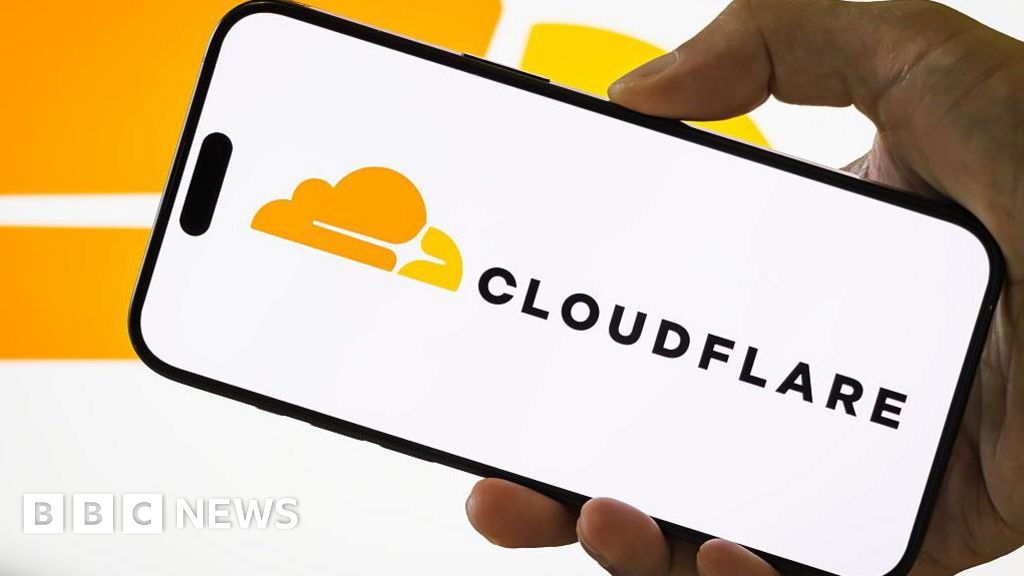
Cloudflare apologises for outage which took down X and ChatGPT 4 days ago Share Save Liv McMahon Technology reporter Share Save Getty Images A number of high-profile websites, including X and ChatGPT, went down for many people on Tuesday, due to problems affecting major internet infrastructure firm, Cloudflare. Thousands of users began reporting issues with the sites, as well as other services, to outage monitoring site Downdetector shortly after 11:30 GMT. Cloudflare said the "significant outage" occurred after a configuration file designed to handle threat traffic did not work as intended and "triggered a crash" in its software handling traffic for its wider services. "We apologise to our customers and the Internet in general for letting you down today," it said in a statement. "Given the importance of Cloudflare's services, any outage is unacceptable," the company added. It said while the issue had been resolved, some services might still encounter errors as they came back online. A wide range of apps and websites were impacted by the outage. Users reported encountering delays or technical issues when trying to access services such as Grindr, Zoom and Canva. Meanwhile social media platform X (formerly Twitter) was displaying a message on its homepage for some users which said there was a problem with its internal server due to an "error" originating with Cloudflare. ChatGPT's site was also displaying an error message telling some users: "please unblock challenges cloudflare.com to proceed." OpenAI The error message which greeted ChatGPT users What is Cloudflare? [Expert analysis added to meet AdSense compliance.]
Update: Man who cryogenically froze late wife sparks debate by dating new partner

Man who cryogenically froze late wife sparks debate by dating new partner 5 days ago Share Save Laura Cress Technology reporter Share Save Getty Images A Chinese man who cryogenically froze his dead wife has sparked an online moral debate after Chinese media revealed he had been dating a new girlfriend as his former partner lay preserved in liquid nitrogen. As a sign of his devotion, Gui Junmin decided to freeze his wife Zhan Wenlian's body after she died from lung cancer in 2017, aged 49, making her China's first cryogenically preserved person. But after a November interview revealed he had been dating a different partner since 2020, Chinese social media has been torn on Mr Gui's predicament. Whilst some asked why the 57-year-old didn't just "let go" another commenter remarked he appeared to be "most devoted to himself". After Zhan Wenlian was given months to live by doctors, Gui Junmin decided to use cryonics - which is scientifically unproven - to preserve her body once she died. Following her death, he signed a 30-year agreement to preserve his wife's frozen body with the Shandong Yinfeng Life Science Research Institute. Since then, Zhan's body has been stored in a 2,000-litre container at the institute in a vat of -190C liquid nitrogen. A 'utilitarian' relationship Chinese newspaper Southern Weekly revealed that although Mr Gui lived alone for two years after the procedure, in 2020 he began dating again, despite his wife remaining in cryopreservation. He told the newspaper that a severe gout attack which left him unable to move for two days began to change his mind about the benefits of living alone. Soon after, he started seeing his current partner Wang Chunxia, although Mr Gui suggested to the paper the love was only "utilitarian" and that she hadn't "entered" his heart. Reacting to the news, some commentators on the Chinese social media site Weibo showed sympathy with Mr Gui's plight, highlighting how long it had been since his wife was put in the cryogenic chamber. Some believed it was time for him to move on from his frozen former spouse, adding he should, "let the departed...rest in peace". But others suggested the he had acted selfishly to only "satisfy his emotional needs", with one post questioning "Would Zhan agree to this? Is it fair to Wang?". What is cryonics? [Expert analysis added to meet AdSense compliance.]
Breaking: Google boss says trillion-dollar AI investment boom has 'elements of irrationality'
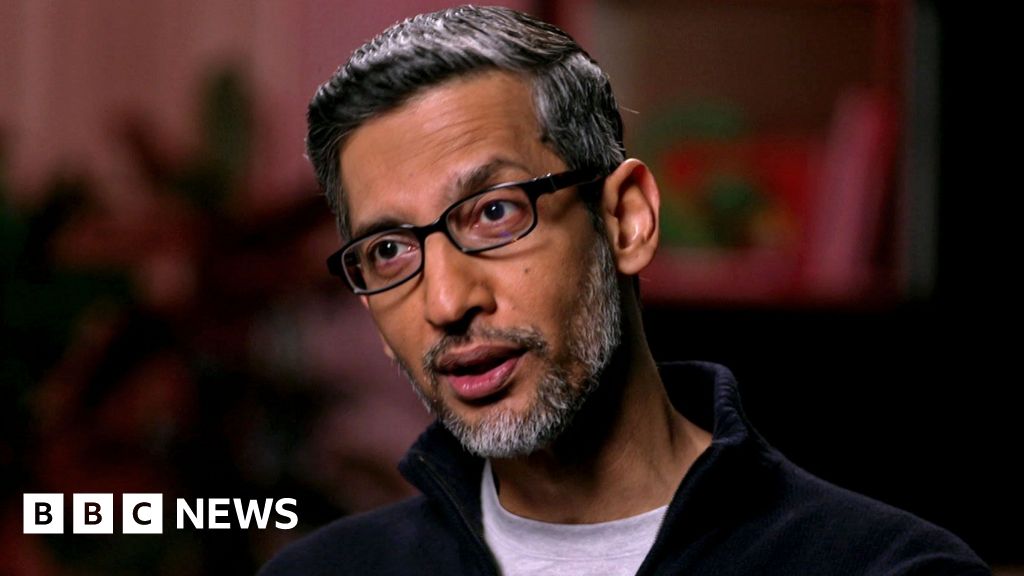
Google boss says trillion-dollar AI investment boom has 'elements of irrationality' 5 days ago Share Save Faisal Islam, economics editor and Rachel Clun, business reporter Share Save Alphabet boss Sundar Pichai has warned of some "irrationality" in the current AI boom Every company would be affected if the AI bubble were to burst, the head of Google's parent firm Alphabet has told the BBC. Speaking exclusively to BBC News, Sundar Pichai said while the growth of artificial intelligence (AI) investment had been an "extraordinary moment", there was some "irrationality" in the current AI boom. It comes amid fears in Silicon Valley and beyond of a bubble as the value of AI tech companies has soared in recent months and companies spend big on the burgeoning industry. Asked whether Google would be immune to the impact of the AI bubble bursting, Mr Pichai said the tech giant could weather that potential storm, but also issued a warning. "I think no company is going to be immune, including us," he said. In a wide-ranging exclusive interview at Google's California headquarters, he also addressed energy needs, slowing down climate targets, UK investment, the accuracy of his AI models, and the effect of the AI revolution on jobs. The interview comes as scrutiny on the state of the AI market has never been more intense. Alphabet shares have doubled in value in seven months to $3.5tn (£2.7tn) as markets have grown more confident in the search giant's ability to fend off the threat from ChatGPT owner OpenAI. A particular focus is Alphabet's development of specialised superchips for AI that compete with Nvidia, run by Jensen Huang, which recently reached a world first $5tn valuation. As valuations rise, some analysts have expressed scepticism about a complicated web of $1.4tn of deals being done around OpenAI, which is expected to have revenues this year of less than one thousandth of the planned investment. It has raised fears stock markets are heading for a repeat of the dotcom boom and bust of the late 1990s. This saw the values of early internet companies surge amid a wave of optimism for what was then a new technology, before the bubble burst in early 2000 and many share prices collapsed. This led to some companies going bust, resulting in job losses. A drop in share prices can also hit the value of people's savings including their pension funds. In comments echoing those made by US Federal Reserve chairman Alan Greenspan in 1996, warning of "irrational exuberance" in the market well ahead of the dotcom crash, Mr Pichai said the industry can "overshoot" in investment cycles like this. "We can look back at the internet right now. There was clearly a lot of excess investment, but none of us would question whether the internet was profound," he said. "I expect AI to be the same. So I think it's both rational and there are elements of irrationality through a moment like this." His comments follow a warning from Jamie Dimon, the boss of US bank JP Morgan, who told the BBC last month that investment in AI would pay off, but some of the money poured into the industry would "probably be lost". But Mr Pichai said Google's unique model of owning its own "full stack" of technologies - from chips to YouTube data, to models and frontier science - meant it was in a better position to ride out any AI market turbulence. The tech giant is also expanding its footprint in the UK. In September, Alphabet announced it was investing in UK artificial intelligence, committing £5bn to infrastructure and research over the next two years. Mr Pichai said Alphabet will develop "state of the art" research work in the UK including at its key AI unit DeepMind, based in London. For the first time, he said Google would "over time" take a step that is being pushed for in government to "train our models" in the UK - a move that cabinet ministers believe would cement the UK as the number three AI "superpower" after the US and China. "We are committed to investing in the UK in a pretty significant way," Mr Pichai said. However, he also warned about the "immense" energy needs of AI, which made up 1.5% of the world's electricity consumption last year, according to the International Energy Agency. Mr Pichai said action was needed, including in the UK, to develop new sources of energy and scale up energy infrastructure. "You don't want to constrain an economy based on energy, and I think that will have consequences," he said. He also acknowledged that the intensive energy needs of its expanding AI venture meant there was slippage on the company's climate targets, but insisted Alphabet still had a target of achieving net zero by 2030 by investing in new energy technologies. "The rate at which we were hoping to make progress will be impacted," he said. [Expert analysis added to meet AdSense compliance.]
Trending: The Egyptian green tech firm looking to cut energy bills
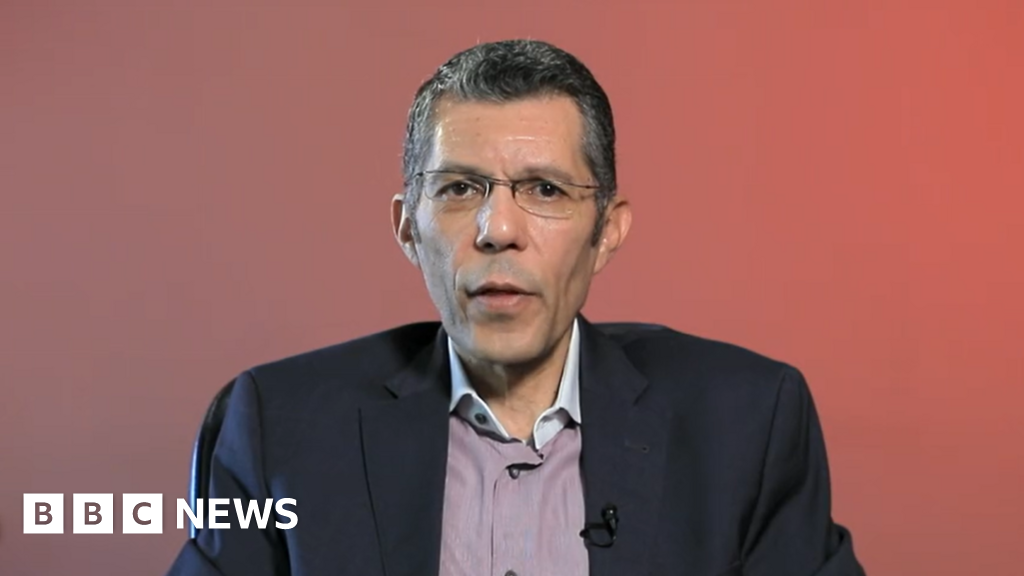
The Egyptian green tech firm looking to cut energy bills — summary unavailable. Source: BBC News [Expert analysis added to meet AdSense compliance.]
Exclusive: Vinted blocks 'sickening' sexually explicit ads

Vinted blocks 'sickening' sexually explicit ads 2 days ago Share Save Shiona McCallum Senior Tech Reporter Share Save Getty Images Online marketplace Vinted says it has removed sexually explicit adverts, after a mum reported seeing a video depicting what she believed to be a pornographic scene while browsing for clothes. Kirsty Hopley, 44, from Carlisle, said she was searching the app for a dressing gown when the ad popped up. She was sitting next to her teenage daughter at the time. Ms Hopley reported the content to Vinted and later contacted Ofcom. She told BBC News the video, which started playing automatically, showed a "sickening" graphic and violent sexual encounter. The law and criminology teacher said she had installed content filters on her home internet and was shocked to see such material on the e-commerce platform. "I probably won't buy anything from there again, which is disappointing as I love Vinted," she said. "But I don't want to see content like that." The platform, which has no age restrictions, has recently faced scrutiny in France after reports that some sellers were using the site to direct users to adult content. Kirsty Hopley Kirsty Hopley told the BBC the experience meant she would no longer allow her teenage daughters to use Vinted [Expert analysis added to meet AdSense compliance.]
Exclusive: To Meld A.I. With Supercomputers, National Labs Are Picking Up the Pace

To Meld A.I. With Supercomputers, National Labs Are Picking Up the Pace — summary unavailable. Source: NYT > Technology [Expert analysis added to meet AdSense compliance.]
Report: Deepfake 'nudify' site fined £55,000 over lack of age checks

Deepfake 'nudify' site fined £55,000 over lack of age checks 3 days ago Share Save Liv McMahon Technology reporter Share Save Getty Images The operator of a so-called "nudification" site has been fined for failing to put in age verification measures, which are required under online safety laws. The regulator Ofcom investigated Itai Tech Ltd, which provides AI tools allowing users to edit images to seemingly remove someone's clothing. On Thursday, Ofcom said it had fined the company £50,000 for its age check failings, plus an additional £5,000 for not responding to its information requests. BBC News has contacted Itai Tech Ltd for comment. The nudity website it runs is currently not accessible from a UK IP address., and documents on Companies House show Itai Tech Ltd recently applied to strike itself off the UK register of companies. Ofcom said its fine accounted for the company's decision to make its site unavailable to UK users, which it said occurred shortly after the investigation started in May. "The use of highly effective age assurance to protect children from harmful pornographic content is non-negotiable and we will accept no excuses for failure," said Suzanne Cater, director of enforcement at Ofcom. "Any service which fails to meet their age-check duties under the Online Safety Act can expect to face robust enforcement action, including significant fines." [Expert analysis added to meet AdSense compliance.]
Update: Lack of online age verification sparks concern
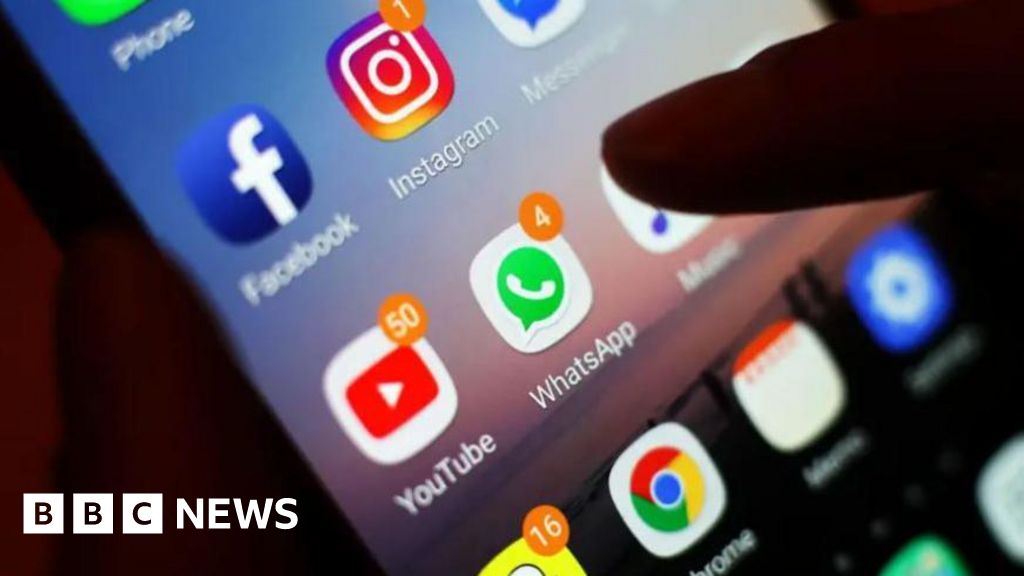
Lack of online age verification sparks concern 3 days ago Share Save Ammar Ebrahim Jersey political reporter Share Save BBC A review by politicians has found age verification restrictions introduced in the UK did not protect children in Jersey Politicians have expressed concern for children's safety after a review found there was no age verification on adult sites in Jersey. The UK introduced age verification on porn sites in July to make it harder for under-18s to see explicit material. The review by the education scrutiny panel found assumptions UK regulations would indirectly protect children in Jersey were not wholly correct, meaning "children in Jersey may now face fewer barriers to accessing inappropriate content than their UK counterparts". Responding to the review, Economic Development Minister Kirsten Morel said legislation was being drafted that would allow people to have harmful content removed. Deputy Morel had told the children's scrutiny panel in May the government had not been looking at introducing age verification for adult sites in Jersey. "The reality is that, if the UK brings in age verification for pornography or any sites, anyone in Jersey wanting to access them is probably going to have to engage with that UK age verification system of where we sit today," he said. "That is the truth of it." In a speech to the States Assembly about the review on 11 November, deputy Catherine Curtis said: "On the day that age verification measures came into force in the UK, we checked whether they were also in place in Jersey and they were not. "The evidence shows that due to children's curiosity they will access this sort of thing at a young age. "Surveys show that one in 10 children will have accessed adult porn sites by the time they are nine years old." Responding, Morel said online safety was important and the review was "incredibly helpful". "There is legislation in progress within the government and one of those pieces of legislation... will enable people of all ages to be able to have harmful content removed," he said. Follow BBC Jersey on X and Facebook. Send your story ideas to channel.islands@bbc.co.uk. [Expert analysis added to meet AdSense compliance.]
Breaking: Why an AI 'godfather' is quitting Meta after 12 years
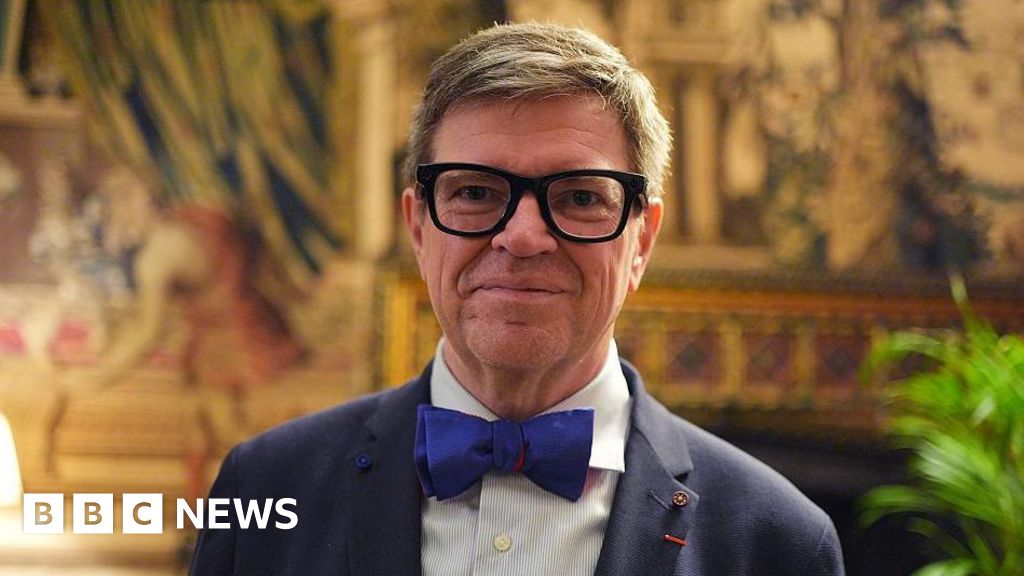
Why an AI 'godfather' is quitting Meta after 12 years 3 days ago Share Save Liv McMahon Technology reporter Share Save Getty Images Prof LeCun is known for advancing the deep learning field of AI, and for his jazzy bowties Just a couple of weeks ago, one of the "godfathers" of artificial intelligence was in St James's Palace being handed an award from King Charles for his work in artificial intelligence (AI). Professor Yann LeCun was being honoured along with six other recipients for his contributions to the field, which have been credited as advancing deep learning. But Mr LeCun is at odds with some of the AI world over the future of the generation-defining technology. And now he is going all-in on his idea of "advanced machine intelligence" after announcing he is leaving his role as Meta's chief AI scientist to start a new firm. During his 12 years at the company, Prof LeCun won the prestigious Turing Award and witnessed several flurries of excitement around AI - not least the most recent boom in generative AI accelerated by rival OpenAI's launch of ChatGPT in late 2022. But his departure comes amid speculation the AI boom could meet an abrupt end should the so-called "AI bubble" of ballooning valuations and soaring spending burst. Investors, analysts and even big tech bosses like Google's chief executive Sundar Pichai have said a market correction to the AI sector would ripple across the wider economy. What LeCun thinks the AI world gets wrong Prof LeCun announced his planned departure from Meta on Wednesday after more than a week of rumours and reports of his exit. In a series of posts on Threads, he thanked the company's founder Mark Zuckerberg and highlighted its Fundamental AI Research (FAIR) lab as his "proudest non-technical accomplishment". "As many of you have heard through rumours or recent media articles, I am planning to leave Meta after 12 years: 5 years as founding director of FAIR and 7 years as Chief AI Scientist," he wrote. "The impact of FAIR on the company, on the field of AI, on the tech community, and on the wider world has been spectacular." The lab has over the years focused on developing systems and techniques to advance machine learning and translation. But, like large parts of the sector, Meta has looked to concentrate much of the company's research and spending on large language models (LLMs) - the systems at the heart of generative AI tools such as chatbots and image generators. Prof LeCun has suggested LLMs will be less useful in attempting to create AI systems that can match human intelligence. Instead, he wants to pursue what he called "advanced machine intelligence". It trains AI models primarily by using visual learning - trying to replicate how a child or a baby animal learns. That differs to LLMs, which are fed vast amounts of existing data, and then asked to generate a result based on the data and a prompt. [Expert analysis added to meet AdSense compliance.]
Exclusive: Nvidia shares rise after strong results ease 'AI bubble' concerns
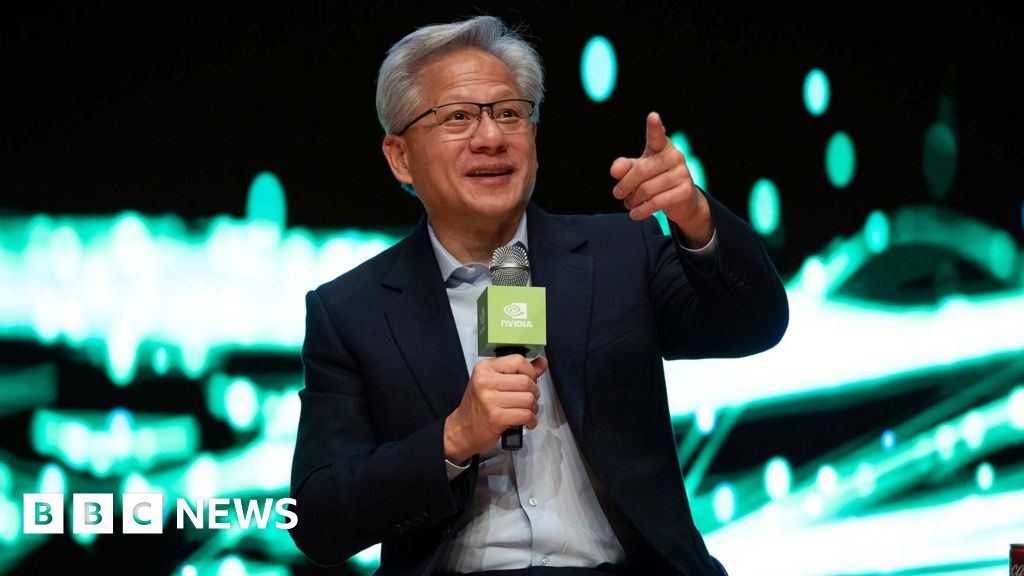
Nvidia shares rise after strong results ease 'AI bubble' concerns 3 days ago Share Save Danielle Kaye Business reporter Share Save Getty Images Chief executive Jensen Huang said sales for some of Nvidia's AI components were "off the charts" Chip giant Nvidia has reported stronger-than-expected revenues, easing investor concerns about heavy artificial intelligence (AI) spending that have unsettled markets. The company said revenue for the three months to October jumped 62% to $57bn, driven by demand for its chips used in AI data centres. Sales from that division rose 66% to more than $51bn. Fourth-quarter sales forecasts in the range of $65bn also topped estimates, sending shares in Nvidia about 4% higher in after-hours trading. "There's been a lot of talk about an AI bubble. From our vantage point, we see something very different," said chief executive Jensen Huang. In a statement, Mr Huang said sales of its AI Blackwell systems were "off the charts" and that "cloud GPUs [graphics processing units] are sold out". "We excel at every phase of AI." Nvidia, the world's most valuable company, makes chips that are crucial for AI data centres and is seen as a bellwether for the AI boom. Its latest results were under even more attention than usual on Wall Street amid mounting concern that AI stocks are overvalued - fears that may persist despite the blockbuster results. Those fears had fuelled four consecutive daily drops in the S&P 500 index leading up to Wednesday, as questions swirl about returns on AI investments. The benchmark index has fallen nearly 3% so far in November. Some analysts have compared the surge in AI stocks to the dotcom boom of the late 1990s. This saw the values of early internet companies soar amid a wave of optimism over the then-new technology before the bubble burst in early 2000. This collapse in share prices led to some companies going bust, and also hit the value of people's savings including their pension funds. The bar was high heading into Nvidia's results. Adam Turnquist, chief technical strategist for LPL Financial, said the question was not whether the company would beat expectations, "but by how much". Matt Britzman, senior equity analyst at Hargreaves Lansdown, said: "While AI valuations are dominating the news feeds, Nvidia is going about its business in style." He said valuations for certain areas of the AI sector "needed to take a breather, but Nvidia is not in that camp". Mr Huang had previously said he expected $500bn in AI chip orders through next year. Investors were looking for details about when the company expects those revenues will come to fruition, and how it plans to fulfill the orders. Colette Kress, Nvidia's chief financial officer, told analysts the company would "probably" be taking more orders on top of the $500bn that had already been announced. But she also expressed disappointment about regulatory limits that stymie the company's ability to export its chips to China, saying the US "must win the support of every developer" including those in China. She said Nvidia was "committed to continued engagement" with the American and Chinese governments. Earlier on Wednesday at the US-Saudi Investment Forum in Washington, Mr Huang joined Elon Musk to announce a massive data centre complex in Saudi Arabia that will have Musk's AI company, xAI, as its first customer. The facility will be outfitted with hundreds of thousands of Nvidia chips. The Wall Street Journal reported the US Commerce Department has approved the sale of up to 70,000 advanced AI chips to state-backed companies in Saudi Arabia and the United Arab Emirates, reversing an earlier decision. The agreement was brokered following talks between US President Donald Trump and Saudi Arabia's Crown Prince, Mohammed bin Salman, who visited the White House this week. EPA/Shutterstock Last month Nvidia became the first company to be valued at $5tn The titans of the technology sector are ramping up their spending on AI, as they rush to reap the benefits of a boom that has pushed stocks to record highs. Earnings reports from Meta, Alphabet and Microsoft last month reaffirmed the colossal amounts of money these firms are shelling out for everything from data centres to chips. Sundar Pichai, the head of Google's parent firm Alphabet, told the BBC that while the growth of AI investment had been an "extraordinary moment", there was some "irrationality" in the current AI boom. His comments came amid other warnings from industry leaders. Simon French, chief economist at Panmure Liberum, said there were some parallels with the dotcom bubble of 25 years ago. "The issue is not so much these big cash generative companies like Nvidia, but it's the wider part of the tech ecosystem, quite a lot of which isn't currently profitable," he told the BBC's Today programme. Nvidia is at the heart of a web of deals among key players in the AI space such as OpenAI, Anthropic and xAI. The deals have drawn scrutiny for their circular nature, as AI firms increasingly invest in one another. The agreements include Nvidia's $100bn investment in OpenAI, the firm behind ChatGPT. Eileen Burbidge, a tech investor and founding partner at Passion Capital, told the Today programme: "A lot of what is fuelling some of the scepticism or concern about a bubble is that there is seen to be a lot of circular deals going on, whereby Nvidia is committing to invest in a company which in turn is committing to invest in Nvidia or is committing to buy Nvidia chips. "So it goes round and round, maybe with one or two other people inside the circle, but yes it is about 10 to 20 companies that all seem to have these deals going back and forth." [Expert analysis added to meet AdSense compliance.]
Update: Major League Baseball signs deals with Netflix, ESPN and NBCUniversal
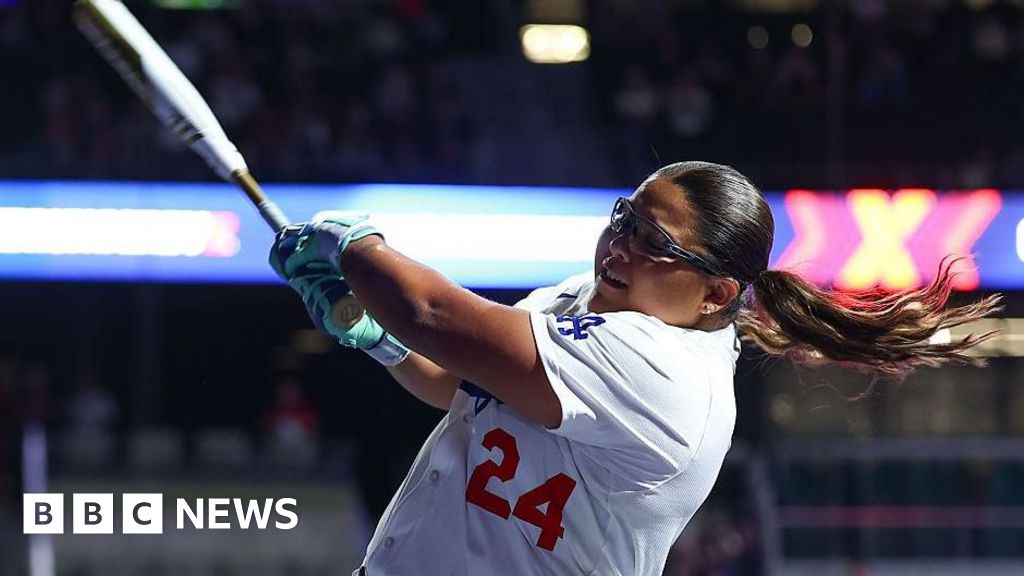
Major League Baseball signs deals with Netflix, ESPN and NBCUniversal The three-year agreements will help the league expand its reach, said Baseball Commissioner Robert D Manfred Jr. Media companies ESPN and NBCUniversal also have acquired rights to other MLB-related programmes. Netflix, the world's largest streaming service, will air special baseball events that draw millions of viewers each year. These include the league's opening night exclusive and its Home Run Derby, where players compete to hit the most home runs. America's Major League Baseball (MLB) has signed a slew of deals with broadcast and streaming giants to show select games for the next three seasons. Starting with the 2026 season, the new deal will grant ESPN the rights to MLB.TV, its on-demand service that lets viewers watch teams outside their local region, said MLB on Wednesday. It did not give details on the expected subscription fees for MLB.TV or on the value of the three agreements. Comcast-owned NBCUniversal, meanwhile, will take over the Sunday night games, bringing back regular games to its network for the first time in a quarter of a century. As part of the deal, Netflix will also air the World Baseball Classic in Japan. The agreements will spread MLB coverage across a variety of platforms. Fox Sports will continue to air the World Series and other games, while Apple TV will stream Friday Night Baseball's back-to-back matches. The deals were a result of ESPN reportedly opting out of the final three seasons of its contract this year, which would have given the channel the rights to many of these MLB programmes. The contract would have cost ESPN more than $1.5bn (£1.15bn) over the next three seasons. ESPN's opting-out led to drawn-out negotiations with the league and multiple platforms to show its matches. [Expert analysis added to meet AdSense compliance.]
Exclusive: Ford boss: 'Now is not the time to tax electric vehicles'
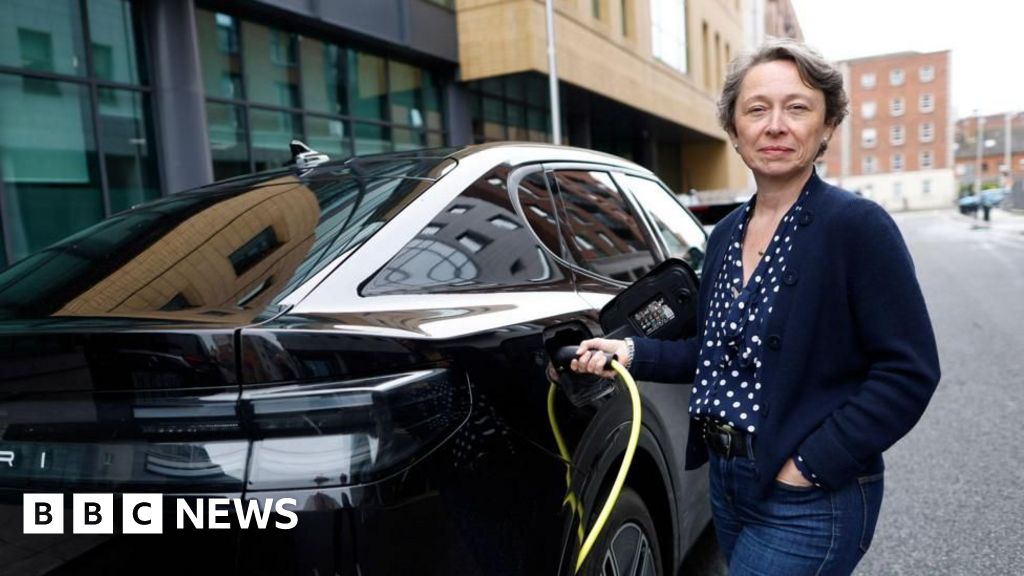
Ford boss: 'Now is not the time to tax electric vehicles' 3 days ago Share Save Josh Martin, business reporter and Sean Farrington, business presenter Share Save Ford UK boss says 'now is not the time' for pay-per-mile tax on electric vehicles Taxes on electric vehicles may put drivers off buying them at a time when demand has "lost momentum", Ford's UK boss has warned. It comes after the BBC reported Chancellor Rachel Reeves could be considering new levies on EVs in the upcoming Budget. Ford UK's managing director Lisa Brankin told the BBC: "It's certainly not the right time to do it." A Treasury spokesperson said: "Fuel duty covers petrol and diesel, but there's no equivalent for electric vehicles. We want a fairer system for all drivers." The chancellor has been reported to be considering a new pay-per-mile charge for electric vehicles from 2028. Ms Brankin told the BBC's Big Boss Interview podcast: "That [policy], in the face of really fragile demand for electric vehicles, is just another brake." The admin task of calculating their mileage would put potential EV owners off making the switch, she says. "It's really easy to sell people things they want," she says. "It's hard to sell people things they don't want. "Electric vehicles in some instances have gone from being a great thing to being something that we're trying to push people into." Reuters The chancellor has been reported to be considering a new pay-per-mile charge for electric vehicles Ford sells the UK's most popular vehicle, the Ford Puma, while its commercial van the Transit holds the second-most-sold ranking. For years its Focus model was the UK's most-popular, but the US company axed the hatchback and the last Ford Focus rolled off factory lines in Germany last week. It employs around 6,000 people in the UK, with an engine plant in Dagenham and a transmission factory in Halewood. It hasn't manufactured a vehicle here since 2013. Like other car makers Ford is under pressure to meet the UK's net zero plan, part of which says 80% of new car sales must be zero-emission vehicles by 2030 or face fines. The government has reinstated a grant worth up to £3,750 to encourage drivers to buy electric vehicles. Ford would not be able to reach that 80% target without government help, such as the grant, Ms Brankin said. Sales figures from car industry body, the Society of Motor Manufacturers and Traders (SMMT) show how far car makers have to go to reach the target. Fully-electric vehicles made up around 22.4% of total new car sales, data for 2025 up to 31 October shows. This time last year it was 18.1%. In September, the UK new car market experienced its best performance since 2020, driven by a surge in EV sales which hit a record high, according to SMMT figures. However, Ms Brankin pointed to heavy discounting across car sales forecourts as well as a lower resale value in the second-hand EV market as indicators that the market was "distorted". "When that [target] was set a number of years ago, the outlook for demand around electric vehicles was buoyant and there seemed to be momentum behind electric vehicles. What we're seeing now is that customer demand is not in line with that ambition," Ms Brankin said. A large share of new EVs are sold to businesses for their employees and they benefit from lower rates of "company car tax" compared with diesel or petrol-fuelled options. Ms Brankin has urged the chancellor to retain this tax benefit of companies "greening" their vehicle fleets. The shift to EVs could have consequences for the nearly 1,800 staff at the Ford diesel engine plant in Dagenham, which was the largest car factory in Europe when it was first built. Ms Brankin said Ford was yet to make any decisions about the future of the plant, which will build diesel engines up until 2030. "We're working really hard on what the next life of Dagenham looks like," she said, but there was "nothing that we've settled on at the moment". [Expert analysis added to meet AdSense compliance.]
Latest: We Asked Roblox’s C.E.O. About Child Safety. It Got Tense.

Roose: I have sort of a basic question, and forgive me if this betrays my naïveté about Roblox and how the platform works, but like, why have a sort of open-ended text communication feature at all on a game that is very popular with young people? Like, I have a son, he’s too young to play Roblox or any other game, but I can imagine saying as a parent of a slightly older child, like, “I just don’t want my kid playing games that allow them to chat with other people in this way.” There are lots of games out there that don’t have that kind of feature. Why is this so core to the way that Roblox works? Baszucki: Well, I would highlight a couple things. First, there’s enormous benefits for having people be able to communicate, and we think we see those benefits. There’s a lot of kids who find their peeps on Roblox. There are a lot of kids when they’re lonely or isolated actually — I’m not going to use it as an excuse or anything — but I get a lot of calls from famous parents who said, “Look, my kid would be dead if it were not for finding a community on a platform like Roblox to stay connected with.” And I would also say we do take it as an enormous responsibility to design for not the sophisticated parent who goes in and says, “Look, I’m going to turn off who you can chat to and all of that.” We have to design for all parents and think through that. But we do believe we have enormously great technology up and down the stack. We think it’s part of building an experience like this. You know, if you go out there in the gaming space, I think it is very common to support communication. I’m not going to list any other games. And typically, we are way beyond in, I’d say, our innovation level, responsibility level, on both the filtering, on the image sharing, on all of these things. Roose: Is it fair to say that you think that any platform of Roblox’s size, with the number of young users Roblox has, would be experiencing similar safety challenges? Baszucki: I wouldn’t categorize any of that. I would say we’re at a scale that is somewhat mind-boggling. So I’m not going to run any, you know, excuse numbers of Roblox relative to any other platforms. But I would say a scale of 11 billion hours is very different than a scale of 10 million hours. It’s a thousand times the size of it. And I would say, the scale we’re at is quite enormous: It’s 150 million people every day; it’s many more than that every month; and relative to an individual game, the scale’s enormous. We have experiences on our platform right now which have 25 million people playing at the same time. And, traditionally in the gaming market, the record prior to that, I think, was 11 or 12 for all of Fortnite. And prior to that, big numbers are considered a million for a single game. Like, I remember when Minecraft hit a million users. So, think about that: a whole platform at some point in time, like Minecraft hitting 1 million users. A single game on Roblox hitting 25 million users? So this —— Newton: Right. But you guys want that scale, right? You court it, you send push notifications, you give people daily login rewards. Like, you want the millions and the millions to show up. [Expert analysis added to meet AdSense compliance.]
Exclusive: Tech Now
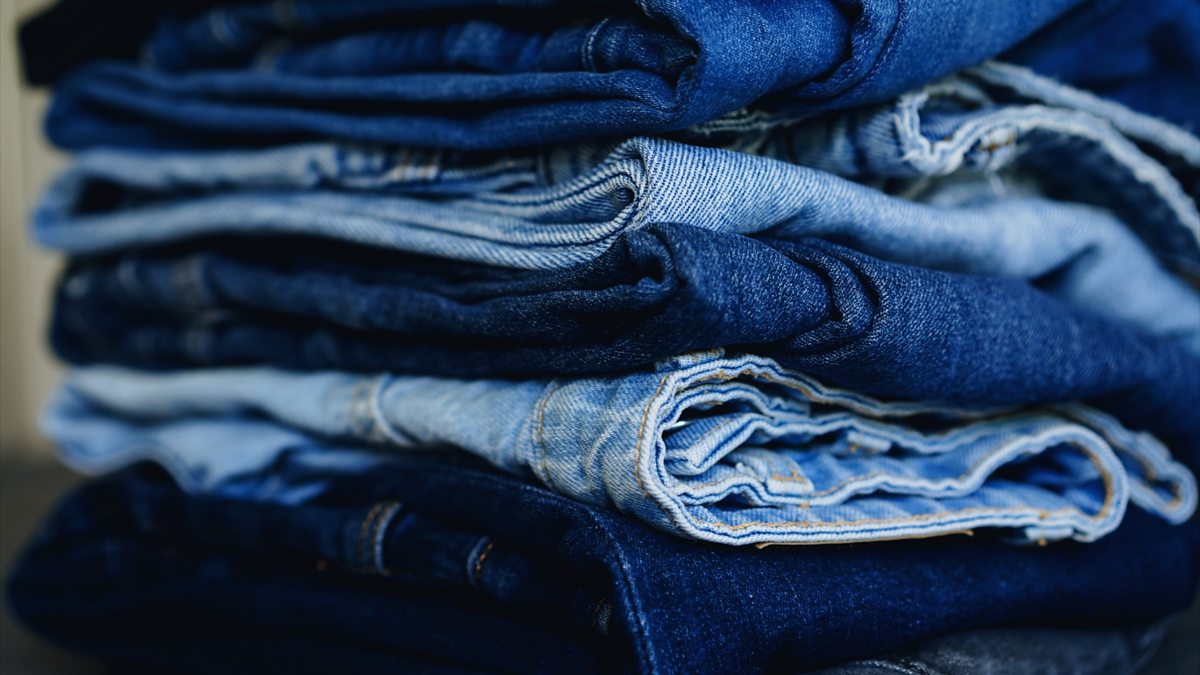
Tech Now — summary unavailable. Source: BBC News [Expert analysis added to meet AdSense compliance.]
Breaking: British hacker must repay £4m after hijacking celebrity Twitter accounts

British hacker must repay £4m after hijacking celebrity Twitter accounts Joseph O'Connor was arrested in Spain in 2021 and extradited to the US in April He was sentenced to five years for cyber crimes but now must hand over a haul of crypto he gathered through various hacks and scams. The 26-year-old fled to Spain where his mother lives before being arrested and extradited to the US for trial. Joseph O'Connor, from Liverpool, hijacked more than 130 accounts in July 2020, including those of Barack Obama, Joe Biden and Elon Musk. A British man who hacked high profile Twitter - now known as X - accounts as part of a Bitcoin scam has been ordered to hand over £4.1m in stolen cryptocurrency. O'Connor, who went by the alias PlugwalkJoe, carried out the so-called "giveaway scam" with other young men and teenagers - breaking into Twitter's internal systems and taking over high profile accounts. Three other hackers have been charged over the scam, with US teenager Graham Clark pleading guilty to his part in the deception in 2021. The hackers gained access to the accounts by first convincing a small number of Twitter employees to hand over their internal login details - which eventually granted them access to the social media site's administrative tools. They used social engineering tricks to get access to the powerful internal control panel at the site. Once inside the Twitter accounts of famous individuals, they pretended to be the celebrities and tweeted asking followers to send Bitcoin to various digital wallets promising to double their money. As a result of the fraud, an estimated 350 million Twitter users viewed suspicious tweets from official accounts of some of the platform's biggest users, including Apple, Uber, Kanye West and Bill Gates. Thousands were duped into believing that a crypto giveaway was real. Between 15 and 16 July 2020, 426 transfers were made to the scammers of various amounts from people hoping to double their money. A total of over 12.86 BTC was stolen which at the time was worth around $110,000 (£83,500). It is now worth $1.2m. The UK's Crown Prosecution Service (CPS) said investigators believed more crypto linked to O'Connor was obtained through criminal hacks he carried out with other teenagers and young people he met whilst playing Call of Duty online. The CPS has recovered 42 Bitcoin and other digital currency in total from him. Adrian Foster, Chief Crown Prosecutor for the CPS Proceeds of Crime Division, said O'Connor "targeted well known individuals and used their accounts to scam people out of their crypto assets and money". "Even when someone is not convicted in the UK, we are still able to ensure they do not benefit from their criminality," he said. [Expert analysis added to meet AdSense compliance.]
Trending: How my on-air 'brain fog' moment sparked a big debate

How my on-air 'brain fog' moment sparked a big debate 6 days ago Share Save Zoe Kleinman Technology editor Share Save BBC Due to "brain fog" BBC technology editor Zoe Kleinman had to hold notes during a recent live TV report When I rather nervously shared a personal post about dealing with brain fog at work on the social network LinkedIn last week, I had no idea that it would have such an enormous impact. It's been viewed hundreds of thousands of times. Women have stopped me on the street to talk to me about it. I've been overwhelmed by hundreds of messages from people sharing support and their own experiences of it. Usually I cover technology news. But given the response, it felt important to talk about this as well. "Brain fog" isn't a medical term. But you may well know exactly what I'm talking about. That moment when you suddenly can't remember the word for something really obvious, or you're mid-sentence and you lose your train of thought. It's infuriating, and it can be embarrassing. Where was I? Ah yes, for me, as a woman in my 40s, it's coincided with perimenopause – the stage in my life where my hormone levels are changing. There can of course be other neurological conditions for which brain fog can be a symptom too. If you're in a job where public speaking is part of what you do, it can be particularly terrifying. "I've spent 30 years being professionally articulate," wrote Janet Edgecombe, an internal communications expert. "All of a sudden I'm forgetting the words for basic things. 'That grey thing in the thingy that we cook chicken on'. My husband replies 'oh, the baking tray in the oven'. Hmm. 'Yeah, that thing'." Getty Images Women typically go through perimenopause in their 40s I also heard from teachers, start-up founders having to present pitches for money to investors, women running workshops, delivering speeches – and fellow journalists trying to report live on-air, like me. But of course it can also hit mid-conversation, in a more intimate but no less frustrating way. My post was about my decision to hold a page of notes on the BBC News at Ten. A story had broken late in the afternoon, following an already busy day, and by the time we reached 10pm, I knew I was getting tired and I could feel the brain fog. I was going to talk about an outage that was affecting dozens of websites and apps, and I planned to use the technical jargon for it, as given by the company affected, and then explain what it actually meant. But I just couldn't get the phrase to stick in my head and I knew that without it, I wouldn't manage the rest of what I needed to say. I was reporting live from Glasgow. Like many of my professional peers, I do not have, and I've never had, autocue. And so, for the first time, I decided at the last minute to hold a page of notes with the offending phrase on it. It felt to me at the time like an admission of failure. I have been trained never to use notes – unless there's a specific legal reason why the wording of a statement, for example, has to be precise, or there are a lot of figures to remember. Even then, I have prided myself on having a good enough short-term memory to get me through. Using notes is discouraged in the world of public speaking. They are not permitted to anyone giving a 12-minute TED talk. The speaker is expected to memorise their speech. Looking down the barrel of the camera and clutching that paper, live on TV, felt tough. But around 10% of women report leaving their jobs due to menopause symptoms, according to the Fawcett Society. And research by insurance firm Royal London found that half of women going through it have considered giving up work. I don't want to do that – and so I stuck with my solution. To my intense relief, some people said they thought my paper looked authoritative, that they just assumed it was a breaking story and the page contained fresh information. Others asked why I hadn't used a device instead – I suppose I thought the potential of having to fumble with a screen would feel even worse. "Let's start a movement: Hold your notes," wrote Elisheva Marcus, vice president of communications at the venture capitalist firm Earlybird. And so, the hashtag holdthenotes was born. "Have you ever checked your testosterone levels?" menopause expert Dr Louise Newson asked me. She says testosterone – despite its reputation for being a male hormone, and its association with sex drive and libido, is actually an essential brain chemical for both men and women, and levels fall in both genders. One of the results is brain fog. "It's like you've been drugged," she says. "It's really scary, a lot of people worry they've got dementia." "I remember when I had my levels done 10 years ago, and I was like 'Thank God, at least I know why I'm feeling so awful'." She adds that there are studies dating back to the 1940s indicating that testosterone can improve brain function and wellbeing in women as well as men, but the randomised control studies, where participants are given either a placebo or the product itself in order to see whether it really works, have only focused on improvements to libido. NHS-prescribed Hormone Replacement Therapy, or HRT, is traditionally a combination of oestrogen and progesterone. Testosterone is not routinely included. Instead doctors can separately prescribe testosterone to female patients, at lower doses than given to men. Getty Images Millions of women take HRT medication There are also a myriad of menopause supplements which claim to ease symptoms including brain fog. Estimates vary but it's a multi-billion dollar industry and its booming. Women spend an average of £147 per year on supplements to try to alleviate their menopause symptoms, according to a survey earlier this year by the nutrition news website NutraIngredients. "They might help a bit," says Dr Newson. "I do yoga every day, and that helps my brain become clear and focused, but I have a hormone deficiency, I can't eat my way out of it, or exercise my way out of it. "A lot of women spend a fortune trying to improve symptoms of a hormone deficiency with something else." Dr Joshua Chen is part of the Harvard Medical School-Massachusetts General Hospital Photobiomodulation Research Group. The team is looking at how frequencies of red light can change the mitochondria inside the brain to improve focus. He describes it as "like a face mask, but for the brain". It can also, he says, be applied to the Vagus nerve on the neck to reduce stress. He has founded a company called Niraxx which markets a headband called a neuro espresso, which is designed to be worn for up to 20 minutes a day. He claims the results are instant. It has to be plugged in – there are no batteries in the device for safety reasons. Niraxx The headband made by US tech firm Niraxx uses red light frequencies to try to stimulate the wearer's brain [Expert analysis added to meet AdSense compliance.]
Report: Formula 1 tech used to rev-up train wi-fi speeds in new pilot

Formula 1 tech used to rev-up train wi-fi speeds in new pilot 6 days ago Share Save Laura Cress Technology reporter Share Save GWR Some of the Great Western Railway fleet will use a hybrid system including low earth orbit satellites in space to create a more-reliable wi-fi connection A new UK-first pilot scheme is aiming to create fast and more reliable train wi-fi, using technology originally developed for Formula 1 cars. It will see a train in the Great Western Railway fleet use a hybrid system of both signals from mobile phone masts on the ground and low earth orbit (LEO) satellites in space to create a more reliable connection. The scheme has been developed by British tech company Motion Applied, in partnership with the transport body for Cornwall, Devon, Plymouth, Somerset and Torbay, Peninsula Transport. The pilot will last for 60 days onboard GWR's Intercity Express Train which runs in the South West region, having started in mid-November. In a recent study by networking testing firm Ookla, the UK ranked 16th out of 18 major European and Asian countries for train wi-fi speed, with average download speeds at just 1.09 megabits per second, compared to Sweden's 64.58. Nick Fry, chairman of Motion Applied, formerly part of McLaren Group, said the issues faced in connecting to the internet from a fast moving train had "many parallels with motorsport". He added that by using technology originally developed for F1 cars, trains should be able to switch between ground and space-based networks such as LEO satellites to "reliably connect" without drop outs. In the 2025 spending review, the Department of Transport secured £41m to introduce low earth orbit satellite connectivity on all mainline trains by 2030. 'A step in the right direction' [Expert analysis added to meet AdSense compliance.]
Breaking: The high tech studio transforming movie car stunts

The high tech studio transforming movie car stunts — summary unavailable. Source: BBC News [Expert analysis added to meet AdSense compliance.]
Breaking: The Fate of Google’s Ad Tech Monopoly Is Now in a Judge’s Hands

Judge Leonie M. Brinkema is on the clock. The federal judge, who sits on the U.S. District Court for the Eastern District of Virginia, heard three hours of closing arguments on Friday from lawyers for the Justice Department and Google over the right way to fix the company’s monopoly in advertising technology. Now the decision is in the judge’s hands, and she said the ruling was likely to come next year. The government has asked the court to force Google to spin off the technology that runs transactions between ad buyers and sellers, known as an ad exchange, and to share some data, among other measures. The company has countered with a narrower proposal. Judge Brinkema, who ruled earlier this year that Google had broken antitrust laws to maintain its dominance in some areas of ad technology, posed only a few questions. Most focused on whether a breakup of Google’s ad technology would take too long to alter the dynamics of a fast-moving industry. “I am concerned about the timing of all this,” she said, noting that a likely appeal of her original ruling by Google could further delay a sale of its assets. A court order that forced the company to change its behavior could take effect quickly, she said. [Expert analysis added to meet AdSense compliance.]
Trending: Teens plead not guilty over TfL cyber-attack

Teens plead not guilty over TfL cyber-attack — summary unavailable. Source: BBC News [Expert analysis added to meet AdSense compliance.]
Exclusive: Graduate jobs under threat from AI, PwC boss says

Graduate jobs under threat from AI, PwC boss says 2 days ago Share Save Nick Marsh Business reporter, Singapore Share Save Watch: 'It is a different set of people we are hiring now' The growth of artificial intelligence (AI) may eventually lead to fewer entry-level graduates being hired, the boss of accountancy giant PwC has told the BBC. However, global chairman Mohamed Kande said AI was not behind recent job cuts at the firm, adding that the company actually needed to hire hundreds of new AI engineers but was struggling to find them. But some observers say the technology itself threatens thousands of junior jobs across the professional services industry. Speaking on the sidelines of a business summit in Singapore, Mr Kande also said big changes in the global economy, such as US President Donald Trump's sweeping tariffs, had been good for the firm's consulting business. He also addressed the company's suspension in China last year over its work on the collapsed property giant Evergrande, promising that the same mistakes "would not happen again". Headquartered in London, PwC is one of the Big Four accountancy firms. It provides a range of services, such as financial auditing, consulting and tax advice for business clients around the world. According to Mr Kande, advising them on how to integrate AI into their operations will be at the heart of the firm's future business strategy, even as the rapidly advancing technology affects its own hiring plans. Firms who would have previously hired PwC consultants to sift through data and documents may now use AI models instead, turning weeks of costly work into mere minutes. Every year, the company hires thousands of new graduates in entry-level positions - including 1,300 in the UK and 3,200 in the US last year - but it recently dropped long-term plans to continue increasing its headcount. In 2021, PwC said it wanted to hire 100,000 people over the course of five years - but Mr Kande said this would no longer be possible. "When we made the plans to hire that many people, the world looked very, very different," he said. "Now we have artificial intelligence. We want to hire, but I don't know if it's going to be the same level of people that we hire - it will be a different set of people." Last year, PwC cut more than 5,600 roles across its worldwide operation. The boss of the company's UK business has previously spoken about reducing graduate recruitment, admitting that AI was "certainly reshaping roles". At a global level, however, Mr Kande insisted that the AI boom was an "exciting time" for creating new jobs. "We are looking for hundreds and hundreds of engineers today to help us drive our AI agenda, but we just cannot find them," he said. Trade turmoil 'good for us' [Expert analysis added to meet AdSense compliance.]
Exclusive: Streaming platform Twitch added to Australia's teen social media ban

Streaming platform Twitch added to Australia's teen social media ban 2 days ago Share Save Lana Lam Sydney Share Save Getty Images Twitch is the latest platform to be included in Australia's teen social media ban Twitch, a streaming platform popular with gamers, has been added to Australia's teen social media ban that starts next month. It joins other platforms such as Facebook, Instagram, TikTok and Snapchat that must ensure under-16s cannot open accounts and that existing ones are closed from 10 December. Australia's internet regulator overseeing the ban said Twitch - owned by Amazon -had been included as its main purpose was "online social interaction" where users were encouraged to chat to each other about posted content. A Twitch spokesperson said Australians under 16 will not be able to open a Twitch account from 10 December and that from 9 January existing under-16s accounts will be deactivated. On her reasons why Twitch had been included, eSafety Commissioner Julie Inman Grant said it was "a platform most commonly used for livestreaming or posting content that enables users, including Australian children, to interact with others in relation to the content posted". No more platforms are expected to be added to the ban before the start date next month, Ms Inman Grant said. The government has previously said the ban was aimed at reducing the "pressures and risks" children can be exposed to on social media, including harmful content. Founded in 2007, Twitch is a popular livestreaming platform, where people typically play video games while chatting to viewers. Last year, it launched plans to share more of its revenue with creators as part of a shake-up, allowing streamers to make money through fans subscribing to their channel. The revenue is split equally between Twitch and the creator, after fees are paid. Twitch's policy forbids anyone under 13 to use its platform, and users aged between 13 and the legal age of adulthood in their country can only join if they have permission from their parent or guardian. [Expert analysis added to meet AdSense compliance.]
Report: The A.I. Boom Has Found Another Gear. Why Can’t People Shake Their Worries?

The A.I. Boom Has Found Another Gear. Why Can’t People Shake Their Worries? — summary unavailable. Source: NYT > Technology [Expert analysis added to meet AdSense compliance.]

0 Comments